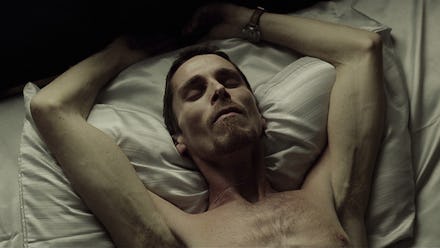Actors Losing Weight For Roles is Not Glamorous, It's Dangerous

This week, Dallas Buyers Club, a movie based on the life of Ron Woodroof — a homophobe and drug addict who, in 1986, was given 30 days to live after being diagnosed with HIV — will be released this week nationwide in the United States. The movie stars Matthew McConaughey and Jared Leto and has already generated significant Oscar buzz. However, the film is not only being recognized for its stellar performances but also for the extreme weight loss of both McConaughey and Leto. Combined, they shed nearly 80 pounds.
Although such drastic transformations are nothing new to Hollywood, they are becoming more and more common. Actors admit the pain and struggle of such extreme transformations, yet they along with the media glamorize the process and send a message that only by undertaking such risks can actors attain great publicity and reward.
Many actors and actresses who have undergone these grueling regimes to transform their bodies for roles are often lauded. Charlize Theron, Tom Hanks, Christian Bale, Anne Hathaway, and Natalie Portman are among those who have all claimed an Oscar after such a transformation. In awarding these performances, we are giving this process an undeserved validity and legitimacy, showing that this is 'real' dedication. Instead, we shouln't laud or celebrate this practice, but condemn and stop it.
For her role as Fantine in Les Miserables, Anne Hathaway lost 15 pounds in 14 days "by food deprivation and exercise, which [she] doesn't recommend." Rapper 50 Cent shed 60 pounds for All Things Fall Apart and was quoted as saying that he "was starving."
However, the issue is not just extreme weight loss, but also rapid weight gain: Charlize Theron gained 30 pounds for Monster, Russell Crowe gained 63 pounds for Body of Lies and Vincent D'Onofrio gained 70 pounds for Full Metal Jacket.
Christian Bale has been the most-cited example of extreme transformations for roles. For his 2004 movie, The Machinist, Bale lost 63 pounds — just over a third of his body weight. According to interviews, Bale was never under any instruction by the director to lose that much weight. He said that he saw no other way of portraying the role, did not trust CGI, and enjoyed the "challenge and slightly self-destructive urges involved in losing that amount of weight." He goes on to say, in the same interview, that he was not under the constant supervision of a doctor. According to him, it is fine to do it once, but "a second time, certainly you're asking for trouble" and it is "horrible." So why did Bale gain 109 pounds in 6 months for Batman Begins right after and lose an undisclosed amount for The Fighter in 2011?
Courtesy Frode Vincenzo.
Before he dropped out of the film, Jim Carrey vowed to put on 40-50 pounds for The Three Stooges. Ultimately, he decided the weight gain was too unhealthy. And right he was. While losing a substantial amount of weight quickly can lead to an extreme difficulty eating and digesting food as well as other serious health problems when the role is over, gaining too much weight is bad for the bones and heart in the long run as well. It turns out that such rapid fluctuations are terrible in either direction.
So why do actors find such preparation necessary? McConaughey even admitted that he "should not look healthy by the time [he's] doing the movie,"and Leto stated that his weight loss is all to "represent the character." Bale argued: "it's just what you end up having to do." But this common publicity trick sets a negative precedent both for what it means to give a good performance and for how viewers treat their bodies. Surely it sends the wrong message to all aspiring actors and people who look up to these stars that it is acceptable to torture your body within such short time period.
Although Hollywood actors who undergo these transformations are — or often are — monitored every step of the way by medical experts, the process should not be celebrated any further. Even if the weight loss is done out of the sheer volition of the actor or actress, he/she should know that they have a loyal fan base who may believe that this is the only way to succeed in Hollywood — the ultimate mark of a brilliant performance. If stars wish to continue this trend and solidify is as the sign of "true dedication," they need to come out and state that there are other ways to display acting talent. Otherwise, such dramatic and dangerous stunts may evolve from a fad and a trend into norm.